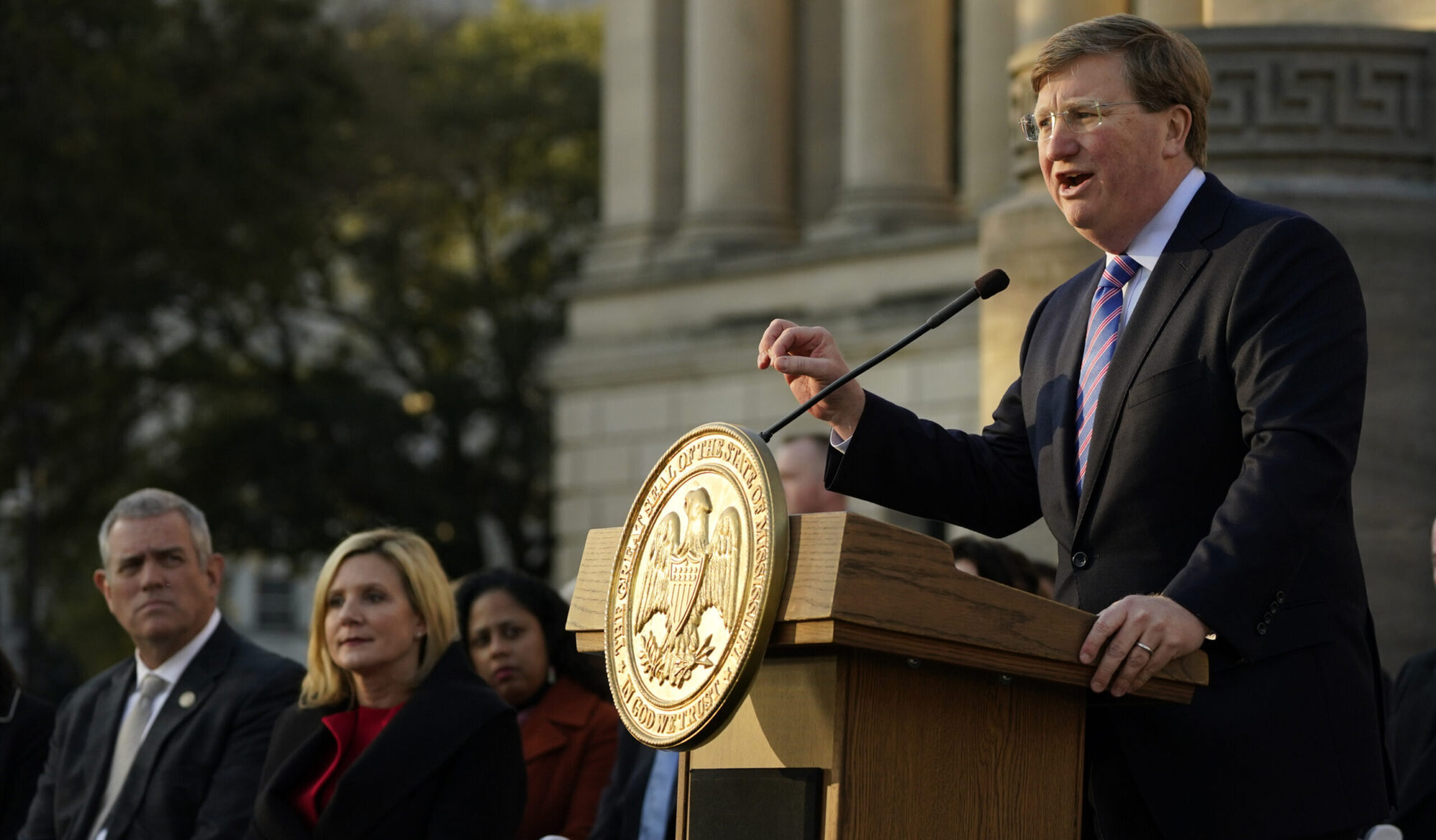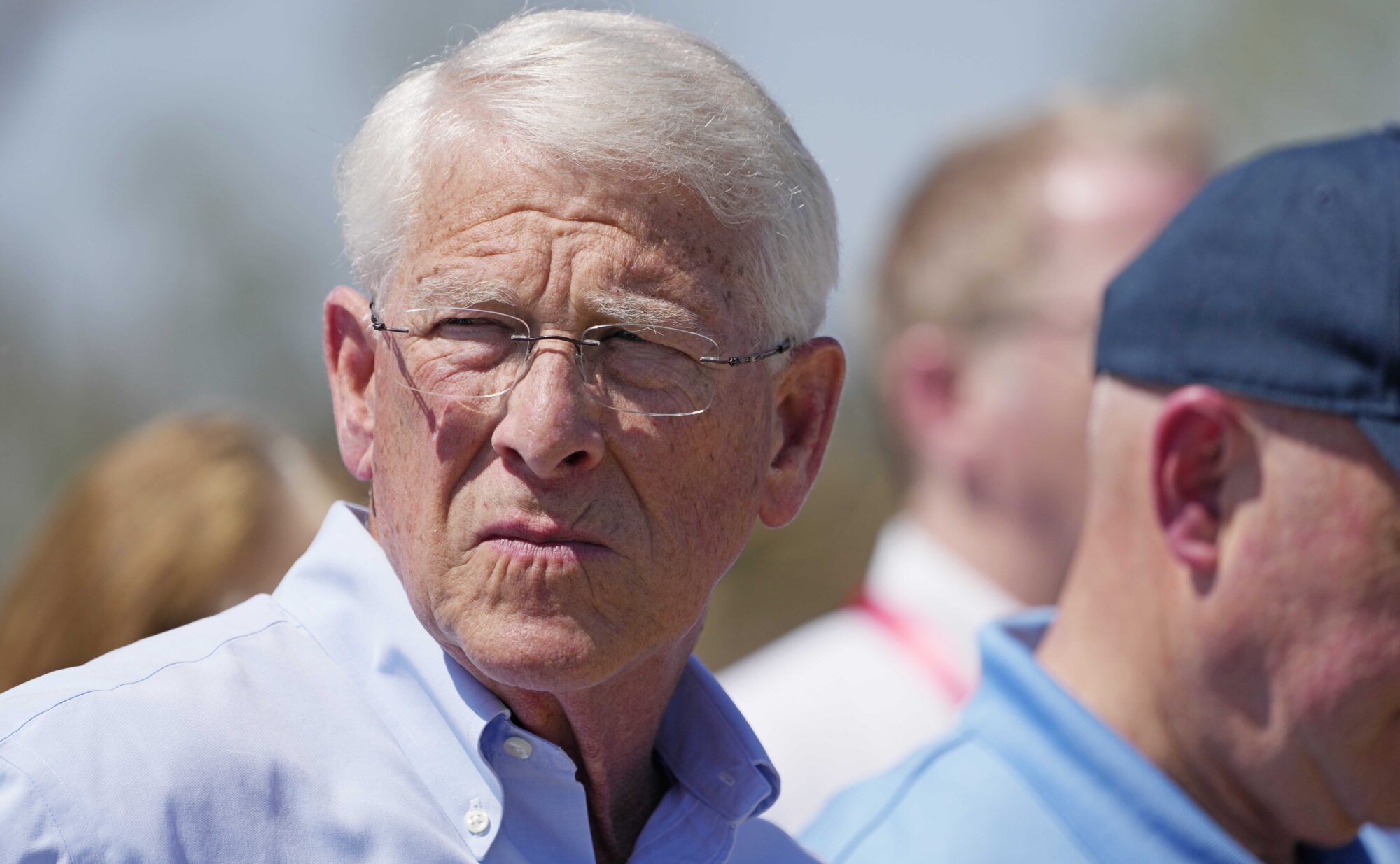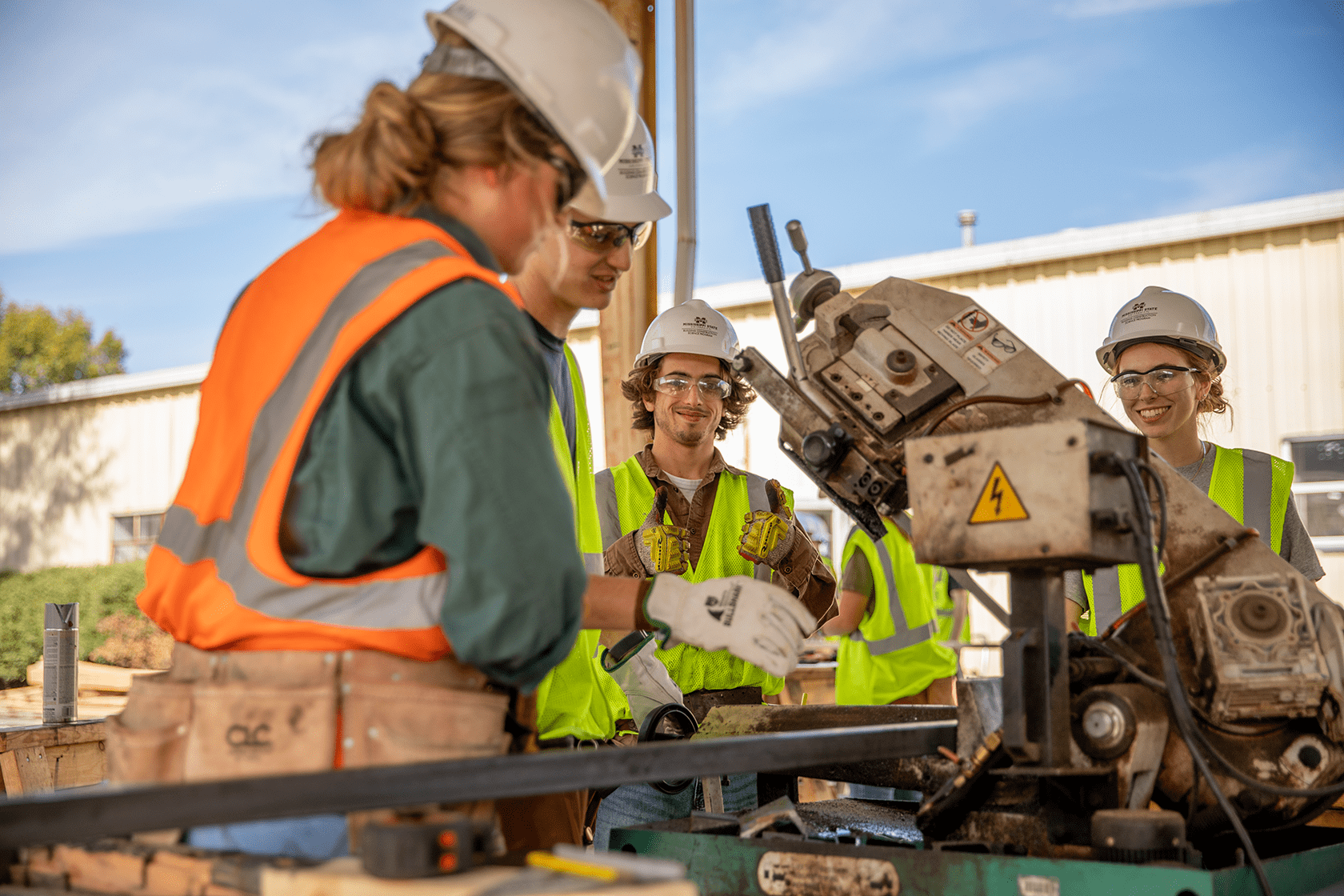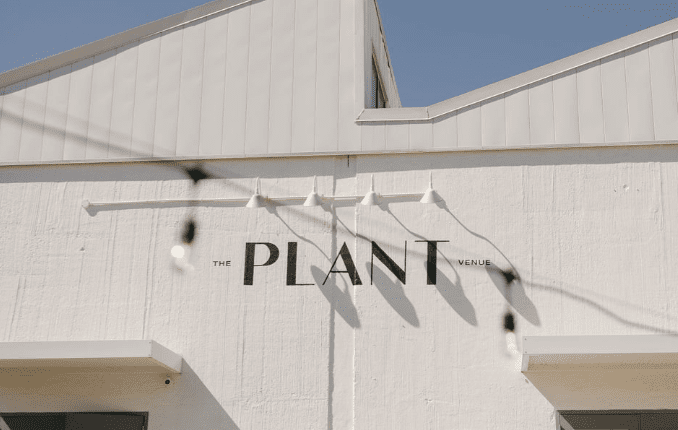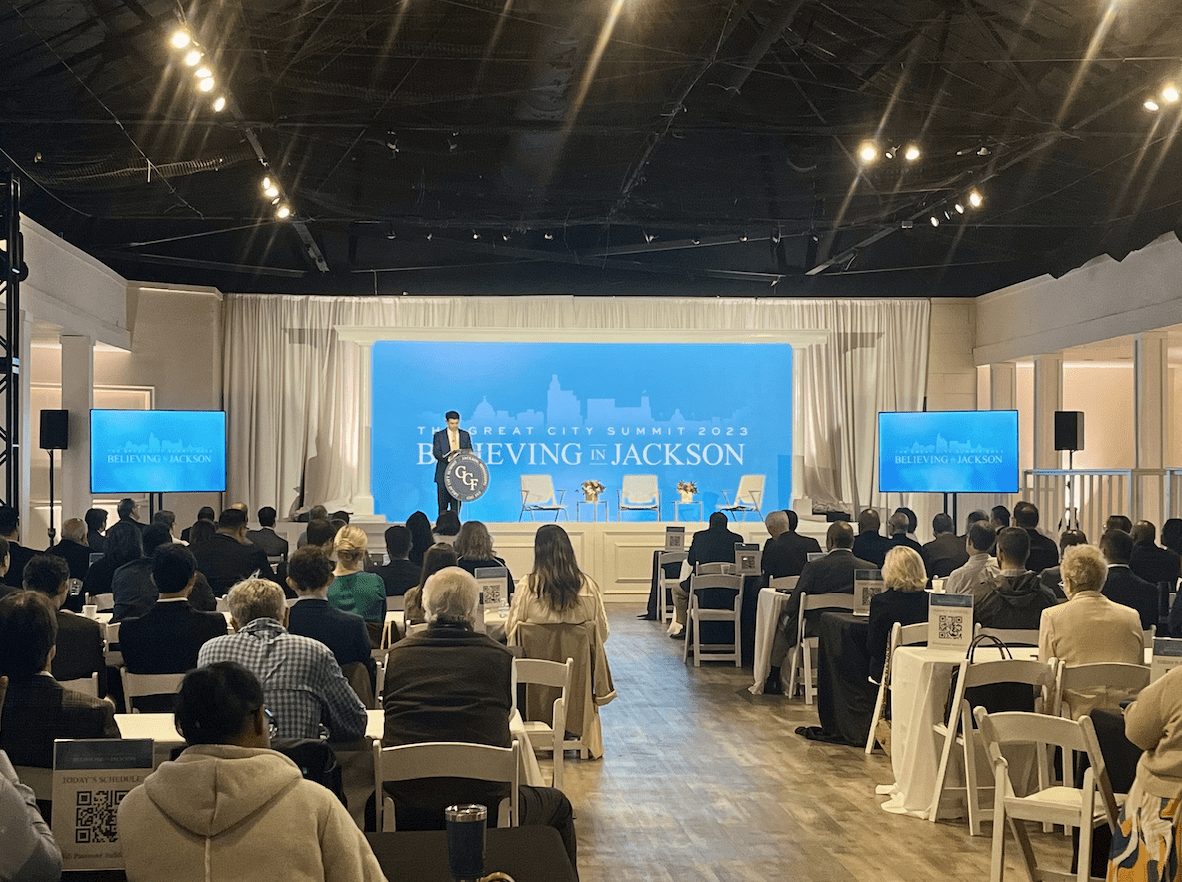
Leaders of the Foundation seek to unify and energize Mississippi’s capital city for the benefit of all.
On Thursday, the Great City Mississippi Foundation hosted the Great City Summit. The event brought together leaders from across the capital city, state and nation to develop new ideas to accomplish shared goals, energize projects, and amplify efforts of good work in Jackson.
The Foundation believes Jackson, Mississippi sits at the center of the South and is working to become one of the nation’s great cities through trust and collaboration. The Great City Foundation says it is committed to Jackson’s future.
The Foundation’s vision for a Great City prioritizes the growth of the Jackson metro area’s economy by building a trail system, improving education and tourism resources, and implementing new infrastructure projects.
“Building a better foundation will pave the way for economic and workforce development as well as training opportunities to keep young professionals engaged and active in our state,” the Foundation outlined. “Great City Mississippi Foundation connects the metro area’s community-led efforts to better utilize resources and make a difference.”

Four panels were highlighted on the event’s schedule: Believing in Jackson, Building a Future for Jackson’s Youth, Building a Beautiful City, and Brain Gain for Mississippi’s Future. Speakers at the event included:
- Stephen Moret, President & CEO of Strada Education Network
- Ryan Gravel, Founder of Atlanta Beltline
- Dr. Jerry Young, Senior Pastor of New Hope Baptist Chruch
- Dr. Ligon Duncan, Chancellor of Reformed Theological Seminary
- Dr. Carmen J. Walters, President of Tougaloo College
- John M. Allin III, Principal Architect at Wier Boerner Allin
- State Representative Ronnie Crudup
- Dr. Nashlie Sephus, tech evangelist for Amazon Web Services (AWS)
- Taylor Nicholas, Executive Director for Great City Foundation
- Susan Garrard, President & CEO of Mississippi Children’s Museum
- The Honorable Chip Pickering, President of Incompas
- Dr. Elayne Hayes-Anthony, President of Jackson State University
- Scott Rodgers, MD, Associate Vice Chancellor for Academic Affairs at University of Mississippi Medical Center
In an opening video, Taylor Nicholas, Executive Director for Great City Foundation, said there’s a common thread that we want our state to be the best state it can possibly be.
“I realized quickly that the state of Mississippi can only reach its level of potential if it has a strong capital city,” Nicholas said, adding that he believes as Mississippians, we want a bright future for children.
The Mississippi Children’s Museum is part of that future. Emily Hoff, its Executive Director, said there have always been challenges in Jackson, just like any other city.
“What I like to focus on is what I can do and what small part I can play in the larger narrative of helping children feel like they have a safe place to come,” Hoff said. “One of the great strengths of the Children’s Museum is that we’ve always been able to be the voice of the child.”
Hoff said one of the most meaningful projects she has been able to be a part of is the building of the new park at Lefleur’s Bluff.
“By gathering resources from both private and public entities, we were able to build a 30,000 square foot playground with state of the art equipment,” Hoff said. “Not only is it an actual, practical place where children and families can gather, but it has really been seen as a beacon of positive momentum in Jackson.”
Monique Ealey, Director of Education and Programs at the Mississippi Children’s Museum, said the facility is so much more than a museum where children go to play. She sees facility as influencers of education and in the field of economic development. Ealey said they are also helping lead the charge for the museum district and what that looks like for the other three museums within their space.
“We are the voice of children, but we also have some very powerful, very intelligent people within our organization that are capable of helping to lead these conversations and be apart of conversations as it relates to what is best for our city,” Ealey said.
Mary Sanders Ferris Caviche, Principal of Ferris Company, focused her remarks on design and helping Jackson tell its story. She said her group can design and brand for any commercial space. Caviche said she could design what she believes to be a beautiful space, but if it doesn’t align with whoever will be running or operating it, it doesn’t work.
“If you were to be asking about Jackson, if the people who were designing all of this for the city are not actually talking to the citizens,” Caviche said. “From a general design perspective, it won’t work.”
State Representative Ronnie Crudup said when he graduated high school, his original plan was to leave the state of Mississippi. However, he said, he started looking at Jackson a different way.
“What are some of the good things in Jackson? What are those things that we can be proud of? Once you start finding out what those things you can be proud of and what you love, you begin to change that attitude for yourself if you want to make a difference,” Rep. Crudup said.
The Great City Mississippi Foundation provided a video outlining projects and goals for the city of Jackson.
“Real progress begins with the end in mind through collaboration and community engagement,” the Foundation relayed to attendees. “Here are a few big, achievable goals from community members. This represents a small fraction of projects and goals for this city. We hope this is the start of a conversation about what Jackson could be!”
The Great City Foundation was formed in 2021 and has a mission to improve the quality of life, the public safety, economic growth and wellbeing of the city. Chip Pickering said the future vision video depicts a realistic, achievable, practical, growth strategy for Jackson.
Pickering, a former Congressman from Mississippi, said even though they have been working very diligently over the last two years putting this vision together, and advocating for it as well as getting feedback on it, the summit is the first public introduction of their work. Pickering said it’s important to not only make an economic case for what they’re proposing, but also a shared value system in faith that unites the Jackson community.
“You cannot be a great state without a great city, and you can’t be a great city without a great state,” Pickering said. “The two are tied together, our future is tied together.”
He explained that 40% of all college students who decide to stay in Mississippi, stayed in Jackson.
“We think that Mississippi’s location, our infrastructure, our supercomputers, our fiber and broadband networks, our leading companies, give us a chance to really leap frog and instead of being last to do something about the future economy, we’ll be the first to do something,” Pickering said.
Prior to the event, Pickering spoke with the Magnolia Tribune about Great City Foundation’s vision. He said the vision for the city of Jackson in the above video was developed through working with Jackson State University, Tougaloo College, the University of Mississippi Medical Center, and other colleges and universities, as well as organizations such as the Trailblazers.
The first part of the vision pertains to parks and interconnecting trails that would make Jackson a place that is both healthier and more beautiful. Pickering said they are working from the reservoir all the way through the museums such as the Children’s Museum, Agriculture Museum, the Civil Rights Museum, and other things downtown.
Pickering said they have plans underway and progress is being made. He explained that the city of Jackson received a huge infusion of federal funds to give the city an opportunity to have a modernized water distribution system that “every city deserves.” He said the Foundation worked with U.S. Congressman Bennie Thompson and U.S. Senator Roger Wicker in support of funding for the water. Their foundation also worked in previous legislative sessions on public safety issues to get assistance from the Capitol Police, additional appointed judges, and more. Pickering said this will help address the crime in the short term.
“We were able to do it in a way that the entire bipartisan Hinds County delegation supported, the local DA, our Governor, our Lieutenant Governor, our Speaker, so our state, city leadership, and legislative leadership without any controversy,” Pickering said. “This year, it turned out a little bit differently.”
Pickering said the reason they had such success with it previously was because they went to all of the stakeholders and slowly built a consensus. He explained that the attempt by the Legislature this year to further expand the Capitol Complex Improvement District and add more crime fighting assistance was well intentioned, but because they didn’t do it in a way that brought the stakeholders to the table on the front end it caused concerns.
“The reality is, we don’t think that we’ll have a new corporate 500 company headquartered in Jackson, or a large law firm, or a major bank that will locate and nest in downtown Jackson. We do believe that Jackson State’s roll as a leading HBCU and a national commitment on the bipartisan level to increasing HBCU funding and research, a national commitment by many of leading companies to invest and partner with HBCUs, give us an opportunity to extend and expand Jackson State’s campus into downtown and to a research center,” he noted.
Pickering said using the leadership of Congressman Thompson and Senator Wicker to bring a research center into downtown Jackson is a doable, achievable strategy based on what they know works in places such as Huntsville, the research triangle in North Carolina, and the Texas medical center in Houston.
“We want to follow those models and to take advantage of our congressional leadership,” Pickering said.
Pickering said most people don’t realize that Mississippi is the lead state across the Southeast with supercomputer capabilities. He said the Department of Defense has five supercomputers, two of which are in Mississippi.
“All of the applications in the future economy are going to have some component of AI,” Pickering said. “Mississippi can be the lead research center on computational capability, taking advantage that we’re the lead of supercomputers.”
Pickering said the Foundation has been working with all of the universities and state leaders to get support. He said the Foundation’s vision is to use this moment to go after a lead research center for downtown Jackson, which will revitalize and grow the area.
“If we’re able to build a new stadium for Jackson State, it allows us to move forward with what UMMC is planning now, a comprehensive cancer center designated by NIH making it eligible for very large infusions of federal research funding,” Pickering said.
He said there is a great need that will be met if all concerned are able to work together in this vision for Jackson.




